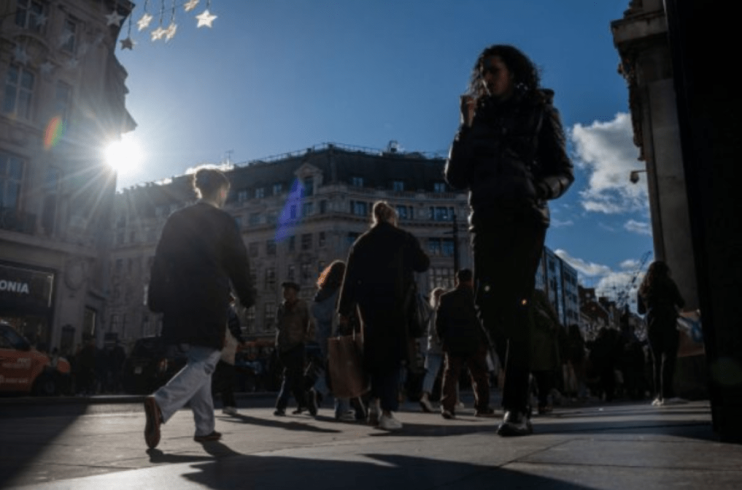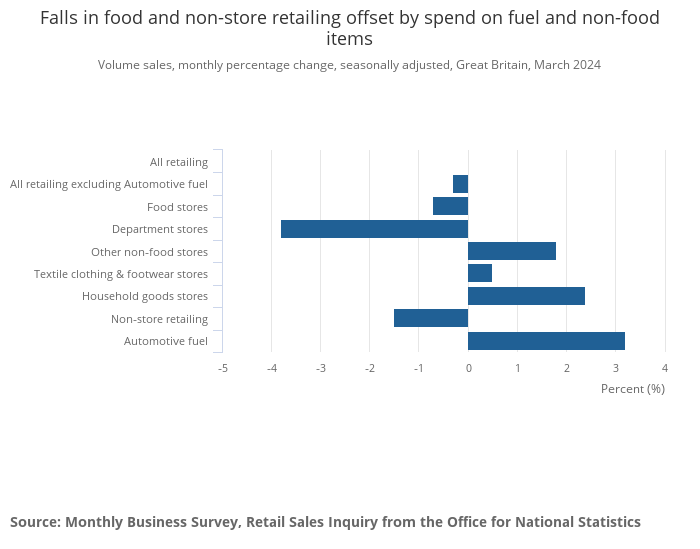
Retail sales remained flat in March, according to the Office for National Statistics (ONS), in a sign that the strength of the consumer might be waning after a strong start to the year.
The latest figures undershot economists’ expectations. Analysts had been expected retail sales volumes to rise 0.3 per cent in March.
Although overall sales volumes were flat, there were substantial changes within different categories.
Fuel and non-food store sales rose 3.2 per cent and 0.5 per cent respectively, while sales in food stores and non-store retailers fell 0.7 per cent and 1.5 per cent.
“Retail sales registered no growth in March. Hardware stores, furniture shops, petrol stations and clothing stores all reported a rise in sales. However, these gains were offset by falling food sales and in department stores where retailers say higher prices hit trading,” ONS senior statistician Heather Bovill said.
“Looking at the longer-term picture, across the latest three months retail sales increased after a poor Christmas,” Bovill said.

Over the year as a whole, volumes rose 0.8 per cent but remained 1.2 per cent below the pre-pandemic level in February 2020.
The figures will be a blow to economists who hope that the UK economy can kick on in 2024 after recovering from last year’s recession.
Falling inflation and the prospect of Bank of England interest rate cuts has made many analysts optimistic about the UK’s prospects.
Inflation fell to its lowest level in two-and-a-half years this week, although it was still slightly above economists’ expectations.
Consumers too seem more confident. A survey from Deloitte, released today, showed that consumer confidence had reached its highest level in two years.
However, residual price pressures mean consumers might remain cautious for a while yet, dragging on the UK’s performance. The Deloitte survey showed that higher levels of confidence had not yet translated into increased spending, particularly on discretionary items.

